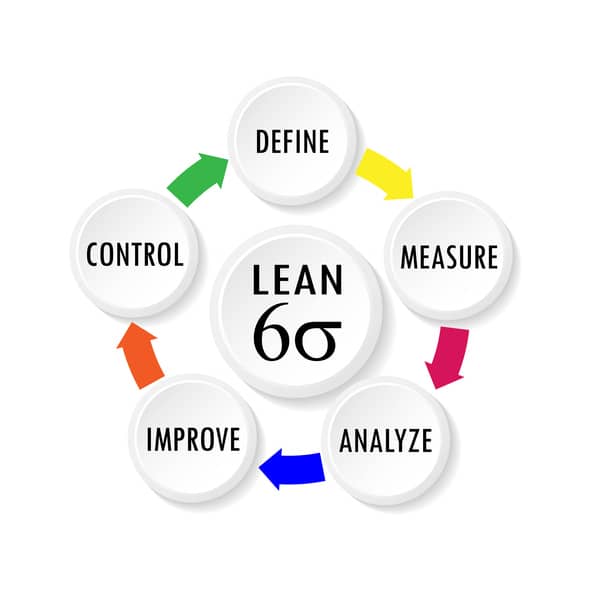As the United States slowly begins to come out of lockdowns imposed because of the coronavirus, experts have started to investigate the types of skills workers need to get the economy back on track.
Not surprisingly, expertise in Lean and Six Sigma rank highly on many lists. Experts believe the skills gained in learning how to implement process improvement, cut waste and maintain a focus on customers will prove critical in a post-coronavirus world.
In an article for CNBC, Emily Poague, vice president of marketing for LinkedIn Learning, wrote that mastering “operational and management” concepts such as Six Sigma will prove key “as companies struggle with the complexities brought on by COVID-19 — from team members working remotely to staff shortages brought on by furloughs or layoffs.”
She is not alone in this assessment. The University of Pennsylvania’s Wharton School of Business, assessing possible post-COVID-19 scenarios, wrote that one possible outcome is a prolonged economic downturn in some areas.
In that case, “thriving in this scenario will require execution-focused leaders with strong financial acumen (e.g., debt refinancing capability) and operational skills (e.g., Six Sigma),” the school wrote.
Changes Expected In Business
The coronavirus has led to a time of upheaval for businesses. Even so, Poague noted that 1.5 million job openings were available in the United States as of early June.
Six Sigma skills can help people land one of those jobs. However, a job candidate can strengthen their chances by honing other skills. Soft skills combined with process improvement knowledge will make someone more marketable in the current environment, according to Poague.
She specifically mentioned the following skills:
- Customer service
- Leadership
- Communication
- Problem solving
- Marketing
Much of this is the focus of both Lean and Six Sigma. Lean, in particular, puts an emphasis on using the Voice of the Customer to determine what people want in a product, then designing a production system that eliminates everything that doesn’t contribute to that goal.
Significant Uncertainty Remains
The Wharton School of Business report offers some sobering realities for business leaders. They noted that “significant uncertainty surrounds what the new normal could look like for firms beyond the COVID-19 crisis,” but that looking at scenarios could help organizations make better plans.
The sobering part is contained in the scenarios. The experts at Wharton created four scenarios that include prolonged economic recession and a largely virtual employment base. On the other hand, they also project the possibility of people working together better to find business solutions, tech advances that help solve economic and health problems, and a renewed understanding in the importance of human contact.
Whatever scenario emerges, Lean and Six Sigma professionals already “have an enormous opportunity to add value to organizations and to our communities,” according to an article in Quality Digest by Lean Six Sigma management consultant Ken Levine.
It’s Time To Rethink Processes
Levine wrote that the coronavirus has clearly shown the need for change in terms of rethinking processes and using analytics to find a better balance between financial reward and health and safety.
Putting Lean principles to work can help businesses “reinvent our future for the better, with health and safety, green, climate change, and other considerations,” Levine wrote.
In preparing for the future, he suggests moving past uncertainty, creating a decision tree and taking a hypothesis testing approach to planning. He suggested Lean practitioners could start with four main possibilities:
- The virus will be gone, either on its own, or due to a new vaccine, sooner than predicted.
- The virus will gradually decline
- The virus will level out and stay with us for a very long time.
- The virus will spike or continue to grow beyond our ability to get ahead of it.
He describes how planning can evolve from these four hypotheses, providing an example of the value of Lean and Six Sigma that Poague and the Wharton school mentioned: Lean Six Sigma thinkers can help businesses navigate the current crisis and the landscape beyond the end of the pandemic.



